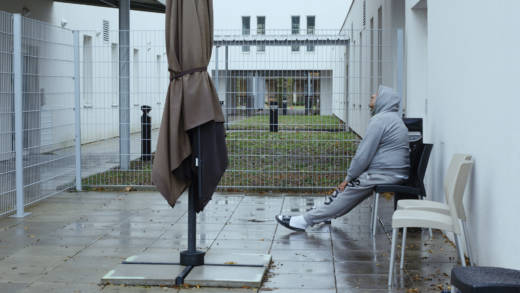By law, anyone checked into a psychiatric hospital in France without their consent – ostensibly because they are a danger to themselves or others – must receive a judicial hearing within 12 days. We glean from veteran filmmaker Raymond Depardon’s empathetic 2017 observational documentary, 12 Days, that judges typically follow the doctors’ recommendations to release a patient or return him or her to custody for further treatment. The effect of the law (and its presumed intent), it appears, is to protect individuals from being indefinitely locked up, ignored and warehoused.
12 Days (screening March 29 at 7:30pm and March 31 and April 1 at 2pm at Yerba Buena Center for the Arts), filmed at a hospital in Lyon, plays like a dispassionate dispatch from a civilized country. Depardon isn’t an investigative journalist, activist or sociologist, and is uninterested in how or why these troubled souls ended up in range of his camera. His aim, as with 2005’s 10th District Court and 1995’s Caught in the Act (both of which played the S.F. International Film Festival), is to show the operation of an arm of the French justice system out of view of the not-quite-innocent majority.
That said, Depardon does editorialize, via deliberate tracking shots through near-empty (but not silent) hallways lined with locked doors, and outdoor, fixed-camera sequences of patients pacing or sitting alone with their thoughts. These artfully composed passages convey a palpable sense of isolation and misery, and contrast sharply with the brightly lit rooms and ritualized interactions of the hearings.
12 Days offers neither answers nor suggestions, neither complaints nor incitements. It provides a nonjudgmental glimpse of the human condition, steeped in compassion and respect. If you’ve read this far, that is likely sufficient incentive, and reward, for you.



